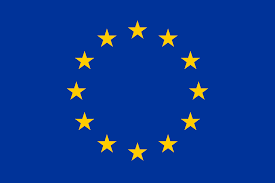Contact Project Coordinator Dr Ivana Damjanovic for more information.
Canberra Law School
Building 11
11 Kirinari Street
Bruce ACT 2617
UC OPEN DAY FEST
Sat 20 Sept, 9am - 3pm
This Jean Monnet Module explores key aspects of global governance from interdisciplinary (law, politics and policy) and comparative EU-Australia perspectives. It bolsters shared knowledge between academic and policy experts in delivering practical learning and innovative pedagogical approaches.

Co-funded by the European Union
The EU and Australia are active actors in global governance. In a globalised world that is becoming increasingly divided along the fault lines of fundamental values, they are engaged with similar challenges, such as: rising protectionism and decline of the multilateral trading system; climate change; human rights violations; migration and gender equality; the global pandemic. Australia and the EU are committed to the Sustainable Development Goals (SDGs) of the United Nations, which have been shaping the course of the global social, ecological and economic agenda until 2030. The EU and Australia also share geopolitical and geo-economic interests in the Indo-Pacific.
The global development agenda and multilateral rules-based order have been deeply affected by a shifting geopolitical landscape. The worldwide crises (caused by climate change, invasion of Ukraine, pandemic) continue to undermine our economies and societies, both in the EU and Australia, posing further challenges for multilateralism, global equity and migration.
The EU and Australia are currently negotiating a Free Trade Agreement, which will provide a framework for regulatory cooperation. This cooperation includes not only trade issues but also a broader sustainability agenda, encompassing climate change, gender, environment, and labour issues. Bilateral cooperation also provides a platform for enhanced cooperation on issues of global governance. Trade cooperation is thus utilised for meeting a number of ‘non-trade’ governance goals.
Importantly, this cooperation will be long-term and will have a real impact on Australian society. In light of this, there is a need to prepare a new generation of University students (particularly in the disciplines of law, political science, economics, business) to understand the nature and the scope of the cooperation with the EU on global issues, and how this cooperation is likely to affect domestic regulation and policies. This Module examines and compares regulatory approaches of Australia and the EU to key global issues, their bilateral cooperation on these issues, and their engagement as global actors in multilateral governance.
I thoroughly enjoyed the unit and was excited to have such a knowledgeable teaching staff on board to take us through the course. I had some of my best university interactions in this course, which was a huge positive. The EU and Australia free trade agreement negotiations were also a huge highlight.
Ryan
Bachelor of Laws
I thoroughly enjoyed the unit and was excited to have such a knowledgeable teaching staff on board to take us through the course. I had some of my best university interactions in this course, which was a huge positive. The EU and Australia free trade agreement negotiations were also a huge highlight.
Ryan
Bachelor of Laws
Some of the most memorable aspects of this course include the incredible guest speakers that we had the opportunity to learn from, the opportunity to participate in a mock trade agreement between Australia and the EU with distinguished industry figures, and the opportunity to examine and compare Australia’s regulatory approach to a key global issue with that of the EU.
Gail
Bachelor of Laws
Some of the most memorable aspects of this course include the incredible guest speakers that we had the opportunity to learn from, the opportunity to participate in a mock trade agreement between Australia and the EU with distinguished industry figures, and the opportunity to examine and compare Australia’s regulatory approach to a key global issue with that of the EU.
Gail
Bachelor of Laws
The course offered a compelling exploration into the profound influence of Europe on both domestic and international dimensions and served as a solid cornerstone for my continued academic pursuits in international law, providing a comprehensive understanding of how collaborative efforts between Europe and Australia can significantly contribute to various global issues.
Elaura
Bachelor of Laws
The course offered a compelling exploration into the profound influence of Europe on both domestic and international dimensions and served as a solid cornerstone for my continued academic pursuits in international law, providing a comprehensive understanding of how collaborative efforts between Europe and Australia can significantly contribute to various global issues.
Elaura
Bachelor of Laws

Contact Project Coordinator Dr Ivana Damjanovic for more information.
Canberra Law School
Building 11
11 Kirinari Street
Bruce ACT 2617
UC acknowledges the Ngunnawal people, traditional custodians of the lands where Bruce campus is situated. We wish to acknowledge and respect their continuing culture and the contribution they make to the life of Canberra and the region. We also acknowledge all other First Nations Peoples on whose lands we gather.
